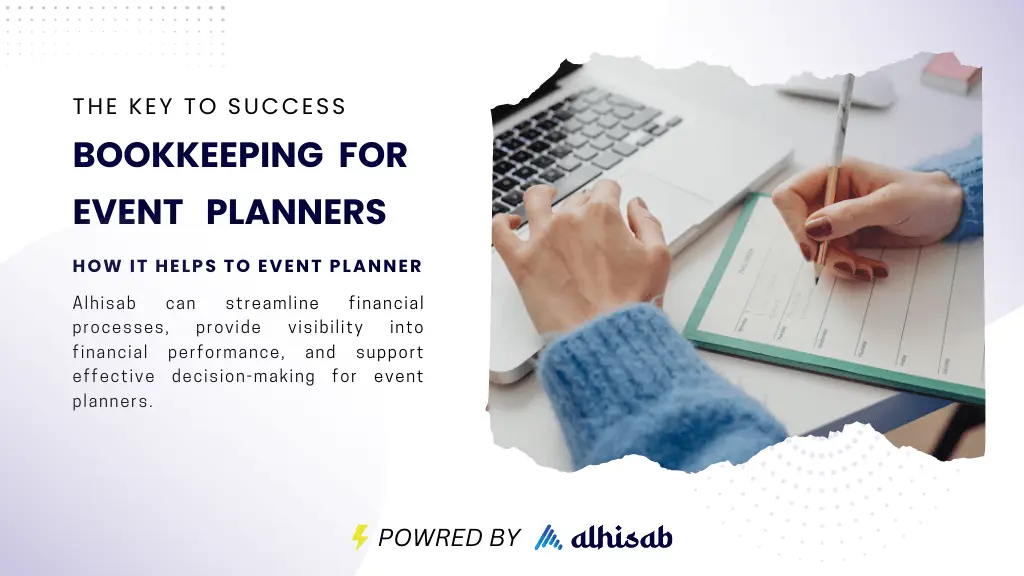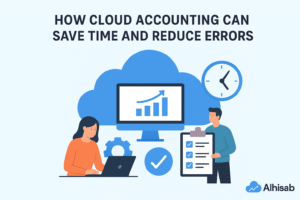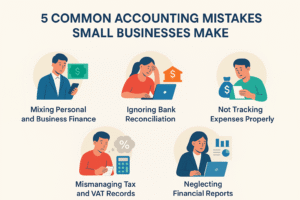As an Event Planner, keeping track of finances and bookkeeping can be overwhelming. However, mastering bookkeeping is crucial for the success of your business. In the article “Mastering Bookkeeping for Event Planners” by Alhisab, you will find helpful tips and tricks to make bookkeeping more manageable.
The article begins by discussing the importance of tracking expenses and income. Keeping a record of every transaction, from paying vendors to receiving payments from clients, is crucial to understanding the financial health of your business. It also allows you to identify any areas of your business that may need improvement or adjustments.
Event planning is a dynamic and exciting industry that thrives on creativity, organization, and attention to detail. From weddings and corporate conferences to birthday parties and festivals, event planners play a crucial role in bringing memorable experiences to life. However, amidst the hustle and bustle of event coordination, one aspect that often gets overlooked or underestimated is bookkeeping. Mastering bookkeeping is not only essential for maintaining financial health but also a key factor in achieving long-term success in the event planning business.
The Importance of Bookkeeping for Event Planners
Accurate financial records are the backbone of any successful business, including event planning ventures. Here’s why mastering bookkeeping is paramount for event planners:
-
Financial Clarity: Effective bookkeeping provides a clear picture of your business’s financial health. It allows you to track income, expenses, and profits, helping you make informed decisions about pricing, budget allocation, and resource management.
-
Budget Management: Event planners juggle multiple projects with varying budgets. Proper bookkeeping ensures that you stay within budget constraints, preventing overspending and improving profitability.
-
Tax Compliance: Maintaining organized and accurate financial records simplifies tax filing. Deductions, credits, and expenses can be properly documented, minimizing the risk of errors and potential audits.
-
Client Relationships: Transparent bookkeeping enhances professionalism and builds trust with clients. You can provide detailed breakdowns of costs, receipts, and invoices, fostering positive client relationships.
-
Business Growth: A well-maintained financial record becomes a valuable resource when seeking funding or partnerships. Lenders and investors will appreciate your organized approach, increasing your chances of securing support for growth.
Essential Bookkeeping Practices for Event Planners
Now that we’ve established the importance of bookkeeping for event planners, let’s delve into some essential practices to master:
-
Separate Business and Personal Finances: Open a dedicated business bank account to avoid mingling personal and business funds. This simplifies tracking and ensures accurate financial reporting.
-
Choose the Right Tools: Invest in reliable accounting software that suits your business needs. These tools can automate processes, track transactions, and generate financial reports effortlessly.
-
Record Every Transaction: Whether it’s an expense, payment, or income, record every financial transaction promptly. This includes client deposits, vendor payments, and any other monetary movement.
-
Categorize Expenses: Create specific categories for your expenses, such as marketing, transportation, venue rental, and supplies. This enables you to analyze spending patterns and make adjustments if necessary.
-
Regular Reconciliation: Reconcile your bank statements with your financial records regularly to identify discrepancies and resolve errors promptly.
-
Invoice Management: Issue professional invoices for your services and track their status. Late payments can impact your cash flow, so ensure a systematic invoicing process.
-
Backup and Security: Keep digital and physical copies of important financial documents. Implement security measures to protect sensitive financial information from unauthorized access.
-
Consult a Professional: If bookkeeping isn’t your strong suit, consider hiring a professional accountant or bookkeeper. Their expertise can ensure accuracy and compliance with accounting standards.
Mastering bookkeeping might not be as glamorous as designing breathtaking event setups, but it’s an integral part of running a successful event planning business. Accurate financial management through effective bookkeeping is the foundation for making informed decisions, maintaining healthy client relationships, and achieving sustainable growth. By dedicating time and effort to mastering bookkeeping practices, event planners can ensure that their creative endeavors are supported by a solid financial structure.

The article then goes on to discuss the different bookkeeping methods available. It outlines the benefits of using accounting software, such as Alhisab, and the advantages of using spreadsheets or hiring a bookkeeper.
One of the most helpful sections of the article is the tips on organizing and categorizing expenses. The author suggests creating categories for different expenses, such as office supplies, marketing, and travel expenses. This can help you easily identify where your money is going and ensure you are staying within budget.
Additionally, the article advises how to invoice clients and track payments. The author suggests using invoicing software or creating invoices in a spreadsheet to track what has been paid and what is outstanding. This can help you avoid missing payments and ensure you are paid on time.
Finally, the article discusses the importance of reconciling accounts regularly. Reconciliation involves comparing your records to bank statements to ensure that everything is accurate and that you have not missed any transactions. The author suggests reconciling accounts at least once a month to avoid any errors or discrepancies.
In conclusion, “Mastering Bookkeeping for Event Planners” is an excellent resource for event planners looking to improve their bookkeeping skills. By implementing the tips and strategies outlined in the article, you can better understand your business’s financial health and make informed decisions about its future.

The Challenges of Bookkeeping for Event Planners
The Benefits of Effective Bookkeeping for Event Planners
Effective bookkeeping is essential for the success of event planning businesses. By understanding the benefits of bookkeeping and learning how to create an effective bookkeeping system, event planners can achieve financial stability, remain competitive, and create unforgettable experiences for their clients.
Key Components of Effective Bookkeeping for Event Planners
Best Practices for Bookkeeping for Event Planners
Keeping accurate records: If event planners want to be good with their money, they must maintain correct documents of all their income and expenses. This means setting up a way to keep track of all financial transactions, like paying vendors, selling tickets, and getting sponsors.
Regular Account Reconciliation – Regular review and reconciliation of financial records helps ensure the accuracy of the event planning business’ bookkeeping and identifies any discrepancies.
Management of Accounts Payable and Receivable: Establishing a straightforward process for managing accounts payable and receivable is essential in keeping the financial records organized. This means keeping track of payments to vendors, contractors, and suppliers and making sure that payments from clients and partners are recorded and matched up.
Using technology: Using technology and tools can help event planners keep their books in a much more organized way. This can mean using accounting software, tools for making invoices, and payment systems to save time and automate tasks that used to be done by hand.
Proactive Financial Management: Proactively managing money and asking for help and advice when needed helps ensure that books are kept correctly and that decisions are made based on facts. This may include working with a financial advisor or accountant.
Benefits of Professional Bookkeeping for Event Planners
Better financial visibility: Event planners can get a clear picture of their income and expenses by keeping accurate financial records and balancing their accounts regularly. This improved financial visibility helps them make informed decisions about their business.
Reduced Risk of Errors and Discrepancies: Regular account reconciliation and accurate record keeping minimize the risk of errors and discrepancies in financial records, helping to ensure the accuracy of the event planning business’ financial information.
Efficiency and Saving Time: Using technology, tools, and best practices to do bookkeeping helps speed up the process and save time. This allows event planners to focus on other essential aspects of their business.
Financial Stability: Effective bookkeeping helps event planners maintain financial stability, making it easier to budget and manage their finances responsibly and informally.
Compliance with Regulations: Keeping accurate financial records is essential for compliance with government regulations, including tax laws and reporting requirements. Professional bookkeeping ensures event planners follow these rules and avoid any legal or financial consequences that could come from not doing so.
Tips for Effective Bookkeeping for Event Planners
Create a Budget: Before planning an event, event planners should create a budget to help track expenses and revenues. This helps to find possible problems and make any necessary changes to ensure the event goes well.
Use Accounting Software : Utilizing accounting software can make it easier to manage financial records, reconcile accounts, and track expenses and revenues. It also helps reduce the risk of human error in record keeping.
Keep Receipts and Invoices: Event planners should keep all receipts and invoices related to their events, as these serve as documentation for financial transactions. This helps ensure accuracy in financial reporting and reduces the risk of discrepancies.
Regularly Reconcile Accounts : Reconciling accounts helps ensure that financial records are accurate and up-to-date. This also helps identify any discrepancies or errors in financial documents.
Work with a Financial Advisor or Accountant : Event planners can benefit from working with a financial advisor or accountant who can provide support and advice for their bookkeeping and financial management needs. This can help ensure that bookkeeping is accurate and that financial decisions are informed and responsible.
Stay Organized: Keeping financial records organized and accessible is essential for effective bookkeeping. This includes having a transparent system for tracking financial transactions and regularly reviewing financial reports.
The Importance of Accurate Record Keeping for Event Planners
Compliance with Tax Laws: Keeping accurate records helps event planners follow tax laws and other legal requirements. This makes it less likely that the business will get fined or punished and helps ensure that it follows the law and does things correctly.
Financial Planning and Decision Making: Accurate financial records provide the information for informed financial planning and decision-making. This includes creating budgets, tracking expenses and revenues, and making decisions about investments and growth.
Transparency and Trust: Accurate record-keeping helps to demonstrate transparency and build trust with stakeholders, including clients, partners, and suppliers. This helps to establish a positive reputation and helps to foster solid and long-lasting relationships.
Overall Financial Health: Accurate record-keeping is essential for the overall financial health of event planning businesses. This helps ensure that financial records are accurate and up-to-date and that the company is financially stable and able to succeed in the long term.






[…] Alhisab, we understand the importance of staying ahead in the ever-changing event planning industry. […]